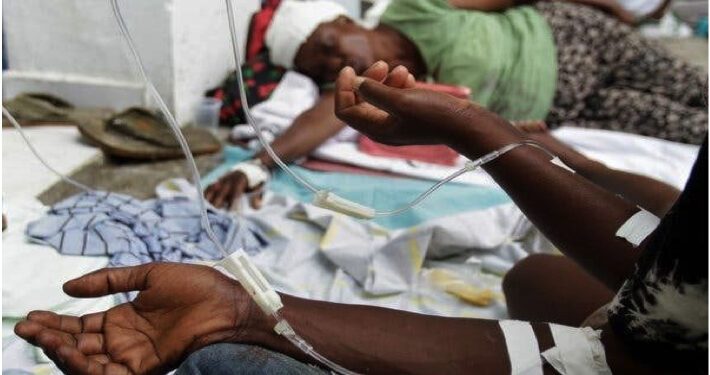KIGALI, Rwanda
The Democratic Republic of Congo is battling the rapid spread of cholera, with 1,601 confirmed cases across the country, health authorities said Thursday.
Speaking to reporters in Kinshasa, Public Health Minister Roger Kamba said the country is facing a “critical health crisis” due to multiple disasters and mass movements of displaced people, with 17 provinces out of 26 affected by cholera.
Some 137 health zones are affected, with Tshopo province the most hit after recording 793 cases, according to the minister, the disease occurring alongside mpox circulation.
He said 11 health zones are preparing for reactive vaccination to contain the spread of the disease.
“We are currently faced with two epidemics: mpox and cholera. Regarding cholera, we are in the 27th week of surveillance of this disease. With about 17 provinces which have reported confirmed or suspected cases, we are in the acute phase of the epidemic, which is still rising,” he said.
Kamba said in the capital Kinshasa alone, 130 cases are reported every week.
Cholera, a bacterial infection, is caused by consuming contaminated water or food.
Noting that most of the cases are managed at the community level, Kamba advised the population to adopt proper hygiene measures and go to health centers and avoid self-medication at the slightest signs such as diarrhea and vomiting.
Health authorities in Congo declared a cholera outbreak in May this year, following laboratory confirmation of cases in multiple provinces of the country.
Since the cholera outbreak, about 33,000 suspected cases have been reported with a fatality rate of around 2% at the national level due to gaps in reaching cholera patients with early and adequate treatment, according to the ministry.
The minister said insufficient medicines and other inputs limit cholera response, which calls for increased awareness and surveillance.
But the government, with support from the World Health Organization and other partners, activated the incident management system to coordinate the national response with the objective of interrupting transmission and reducing cholera deaths.
Rapid response teams have been deployed to affected areas to support local health authorities with case detection, investigation and clinical management.






